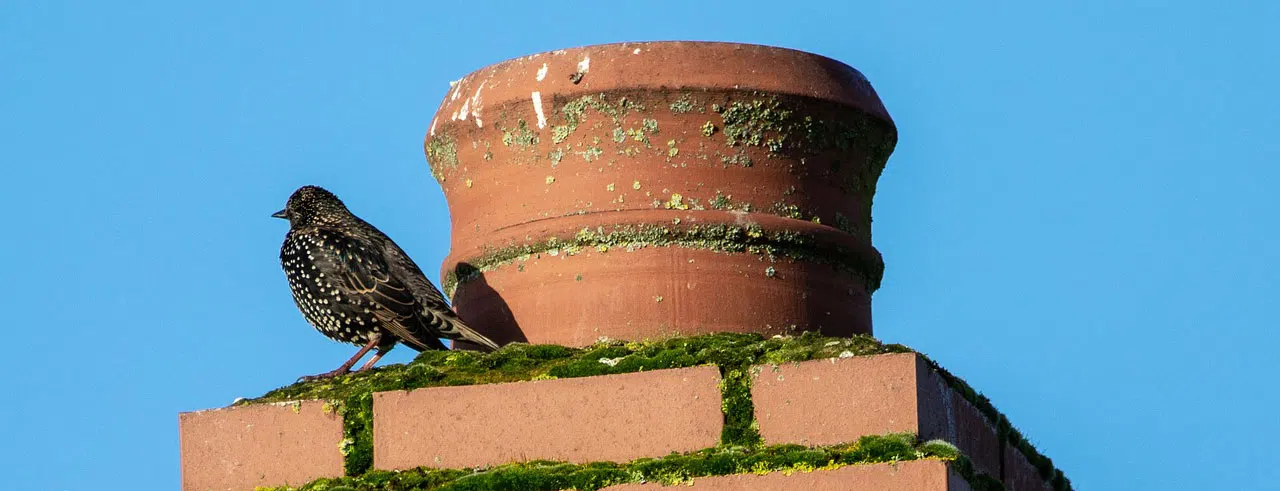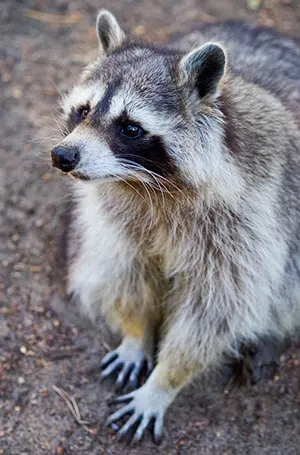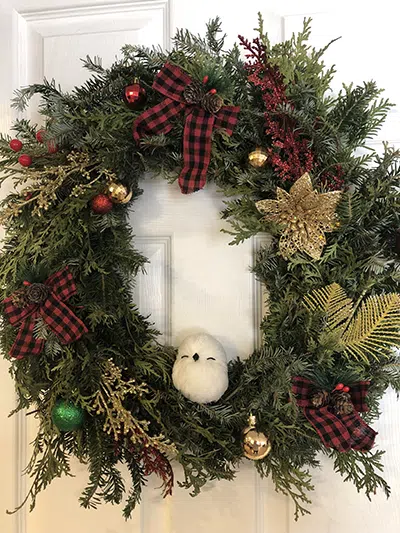Are you hearing activity in your chimney? Perhaps some scratching, thumping, or tapping? Are you suspecting that an animal has set up house in your chimney? You could well be correct. Animals hiding or nesting in chimneys is not nearly as uncommon as one might think. Let's explore what type of animal may be the culprit.

Identifying the Source of the Scratching Sound
To be fair, all sorts of noises can come from your chimney. From deteriorating brick trickling down to wind, backdraft or creosole expansion - none of those are a good thing and a chimney inspection by a certified chimney sweep may be in order. But, if it's scratching you hear, chances are you've got yourselves some house guests. Well, chimney guests.
Common Animals That Enter Chimneys
Chimneys often make a fine substitute for hollow trees or tree cavities. Especially when temperatures are falling as we near the cooler seasons, animals may seek the warmth and shelter your chimney can offer. Let's check out what type of animals may be the source of your scratching sound.
Birds
Birds are frequent chimney guests. You'll likely hear sounds of chirping, rustling, or even flapping. Sadly, once descended into a chimney, birds often have trouble finding their way out. Flying up straight (which is what would be required) is difficult if not impossible for many bird species. Birds also often determine your chimney to be the perfect nesting location. Both, the bird and/or a bird nest can block your chimney and could result in impeded draft or even a chimney fire.
 Raccoons
Raccoons
Raccoons are not known for being the most dainty or delicate critters. You may well hear thumping, scratching, and the chitter chatter of a vocal raccoon. Raccoons are sociable animals and communicate with each other frequently. You'll likely notice most of the activity during the late night/early morning hours. Raccoons are excellent climbers and will probably be able to get out without your intervention. Then again, your chimney may just be a stepping stone on the way to your attic.
Squirrels
Not nearly as noisy as raccoons, squirrels may also frequent your chimney. Scratching and chittering may alert you to their presence. Squirrels are incredible climbers who are able to travel up and down chimneys in record time. Squirrels are most active during the day, so that's when you'd expect to hear them. Like raccoons, squirrels will also be able to exit on their own.
Bats
The sound of flapping and screeching or squeaking may lead you to realize that a bat has found its way into your chimney. Bats are nocturnal, so the most activity would be noticed around dusk and dawn.
Mice and Rats
Tiny feet scurring and scratching probably points to mice or rats in your chimney. There may be some unmistakable squeaking, too. Unfortunately, once in there, they are likely unable to exit on their own. Mice and rats are known for many things - climbing is not one of them.
Opossums
On rare occasions, your chimney may even host the elusive opossum. The good news is that while they may use your chimney to have a bit of a snooze, they are nomadic and likely would not make a habit of it. They travel extensively in the search for food and do not nest like other animals. Being marsupials, momma possum does her child rearing on the go by carrying them first in her pouch and later on her back.
Steps to Take When You Hear Scratching
Exclusion
The first (and easiest) thing to do is to install a chimney cap and/or some hardware cloth (wire) over your chimney. Obviously, the anmial would have to be not present when you do so. A chimney cap can help keep larger critters such as raccoons out, and obstucting your chimney opening with a hardware cloth would keep squirrels, mice, and birds at bay.
Trapping
Because of location and difficulty to access, any trapping should probably only be attempted by a certified wildlife removal specialist. Safety and being able to work at heights is a must here. You'd also have to be absolutely sure that no offspring is left behind. This is super important! Babies would be condemned to a terrible death if trapped in your chimney without their mother.
Deterrents
Commercially available predator scents may have a limited effect. But, your best option and the only way to prevent animals entering your chimney is to block the way in. In the case of a bird claiming your chimney, you could also make a whole lot of noise around your fireplace or stove pipe and make the environment a little less hospitable.
Habitat Modification
Again, capping your chimney or otherwise blocking access is the only habit modification possible.
Lending a Hand
If you find that a bird or animal has become trapped in your chimney, offering help might be the kindest and best thing do. Birds may find their way out through your fireplace or wood stove if you open the flue and allow some light in to show them the way. If you feel adventurous, you could attach a rope into your chimney to allow a trapped animal to climb out.
Professional Wildlife Control
The smartest thing to do when hearing animal noises in chimney and realizing that you have an uninvited guest in your chimney, may be to turn to a Wildlife Control Specialist. Under any and all circumstances, you'll want the bird or animal to exit your chimney alive. After successful extraction of the offender, a professional will be able to assess any damage and present you with a repair and prevention plan.
How Hawkeye's Humane Animal Control Can Help
Hawkeye's technician are qualified and licensed to work in extreme and hostile environments. Don't risk injury to yourself - let us remove the animal for you. Depending on how long the animal was allowed to linger in your chimney, there may be the necessity for cleanup as well. Wildlife and bird excrement carry substantial health risks, especially for those with respiratory problems. If you are faced with an animal or bird in your chimney, call Hawkeye Bird & Animal Control. We're here to help.














